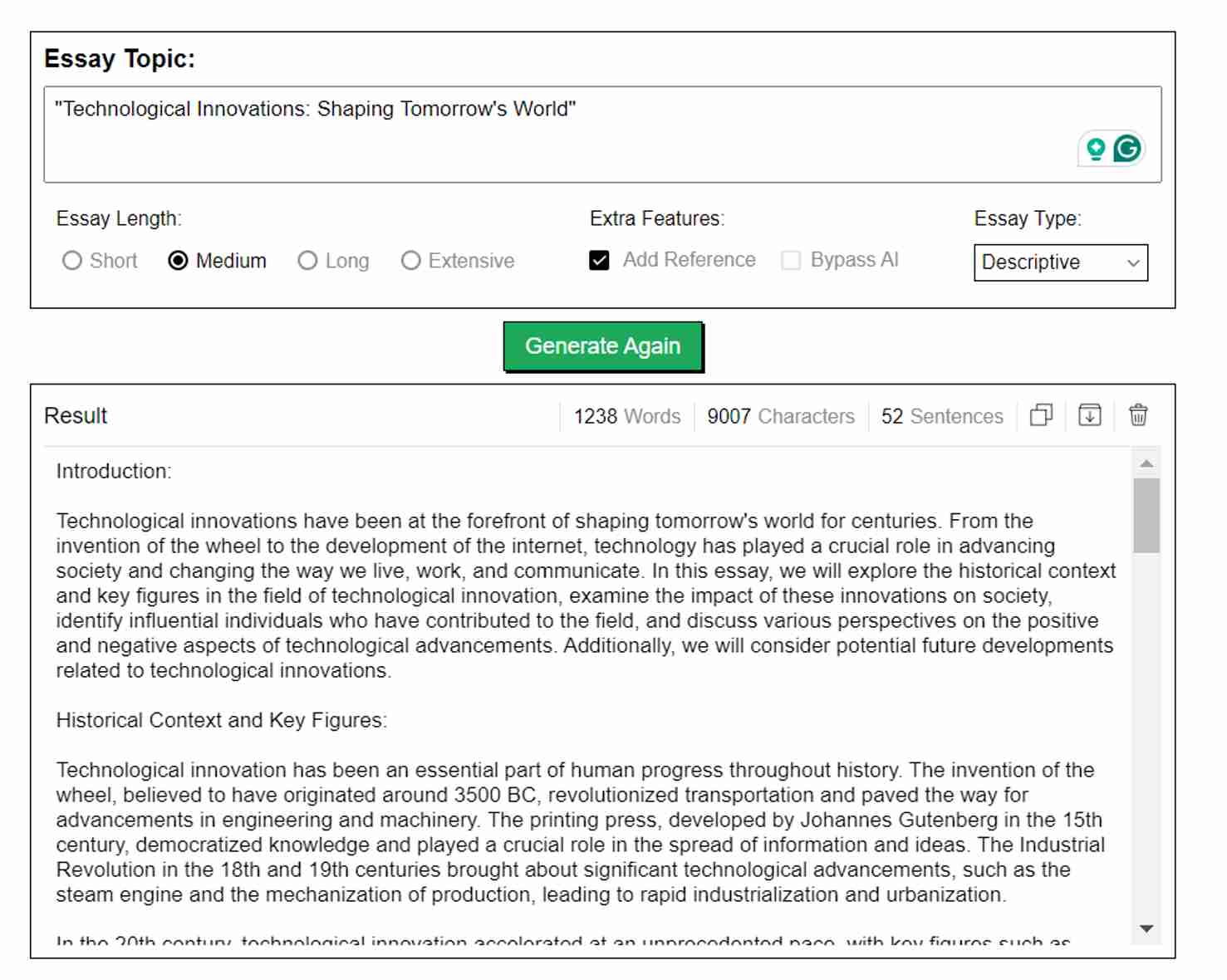The Beginner’s Guide to Writing an Essay: Steps & Examples
An essay is like talking to someone in writing. It lets you write down your ideas and thoughts and share them with others. It’s like writing a story or describing something, but it’s better planned and more thoughtful.
Why not think of writing essays as a brain power? It helps you in school, at work, and in everyday life to write down your ideas if this is the first time you’ve written an essay! This guide is here for you.
It will guide you through easy-to-follow steps and with examples to make it easier to understand. This is for people who want to write appropriately, like students and workers. It’s great for beginners because it has examples and easy steps.
What Is The Importance Of Essay Writing?
Writing essays improves your ability to communicate, think critically, organize your thoughts, and do research. Communicating clearly in school, expressing yourself, and getting ready for business communication are all essential skills that can be learned through writing. Here are some points that we will discuss in how we can write an essay.
Also Read: Effective Strategies for Writing an Outstanding English Essay
Five Essential Steps to Write an Effective Essay
- Topic Selection
- Preparation and Planning
- Research
- Outline
- Proofreading
1. Topic selection
-
Brainstorm Ideas:
Make a list of possible essay subjects to complete the essay. Think about your interest scope and sources of the topic
-
Narrow Down The Topic:
Check your brainstormed ideas and pick out one possible topic within the word count number.
-
Increase A Clean Assertion:
After deciding on your topic, make a clear draft of your concern. It covers all of the major points or desires. Your writing and studies can be guided through it.
2. Preparation and Planning
-
Examine The Essay:
Examine and understand the essay’s spark off or question. Analyze what the essay is looking to do. Be aware of any critical facts or keyword commands provided.
-
Figure Out What You Need:
Figure out the requirements for your essay, such as how long it needs to be, what style you need to use (APA, MLA, etc.), and what other parts of the document it needs to have.
-
Clarify Doubts:
Ask your instructor for clarification on any essay issues. A clear understanding is essential.
3. Conduct Research About the Subject Matter
-
Collect Sources:
Begin by reading the various sources, along with books, papers, journals, and websites, associated with your problem of preference. Make sure that whatever you have got is reliable and relevant to your situation.
-
Write Notes:
Maintain complete notes of significant thoughts, helping proof, and references as you gather facts. Write quotes and citations as special notes.
-
Organize Research Material:
Arrange the study material. Create a listing of citations or assets to make the method less complicated.
4. Write Outline
-
Create a Structured Outline:
Draft the structure of your essay. List down the headings and sub-headings that you want to add to your essay. Try to cover all the necessary points that you noted. Online tools like Bard and ChatGPT can also help in drafting outlines.
-
Get ideas organized:
Match the outlines with your essay’s theme and ensure every line is relevant. Check if all the headings and sub-headings are in a logical order and make a proper flow of ideas till the conclusion.
-
Write Essay:
Now comes the main work i.e. filling the outlines with meaningful words. Every word is important so use them wisely. Jot down relevant ideas, information, facts, and stats in the appropriate heading. Make a smooth transition between headings to keep the flow alive.
5. Proofreading
-
Grammar and Spelling:
The most essential part of essay proofreading is verifying spelling and punctuation. Check your grammar and verb tenses after writing your essay. Make sure not to use those synonyms which change the meaning.
-
Clarity And Coherence:
The most important part of essay proofreading is verifying spelling and punctuation. Take a look at your grammar and verb tenses after writing your essay. Look out for synonyms, words that sound the same but represent different things. Replace words with better synonyms to clearly present ideas.
-
Formatting And Citation:
Citations and formatting are important parts. Double-check your citations to maintain a strategic distance from plagiarism or misfortune of validity in your writing.
-
Check for Plagiarism:
Once the essay is complete and proofreading is done, check for plagiarism. No doubt you would have written each word from your ideas but still there can be accidental plagiarism. So checking is a must and there’s no exception. Once originality is ensured, submit, or publish your essay.
Also Read: Paragraph on My Mother
Use An Online Essay Writer: An Advanced And Super Fast Way
The above steps for essay writing may seem difficult to you as they consume a lot of time and effort. Along with these things the manual process, demands you to have proper academic writing skills.
In this scenario, we want to introduce you to an advanced as well as super fast way of generating essays with an online Essay writer tool.
In this method, you just need to provide a topic or title for which you want to write an essay, adjust some settings and run the tool. A tool will take a few seconds and will provide you with unique and unparalleled essays.
Practical Example:
“We provided a topic to a tool .e. Edtitpad’s AI essay writer, adjusted necessary settings and ran the tool. The essay writer took no time to generate a compelling, unique, and simple-to-read essay.”
Pictorial Demo:
Conclusion
Writing an essay involves expressing yourself on paper. This guide has examples to simplify the process for people who have never written one.
The guide helps you choose a topic, prepare, research, plan, and complete your paper. Additionally, we explained an automatic and advanced way to write an essay which is by using an essay writer tool.


